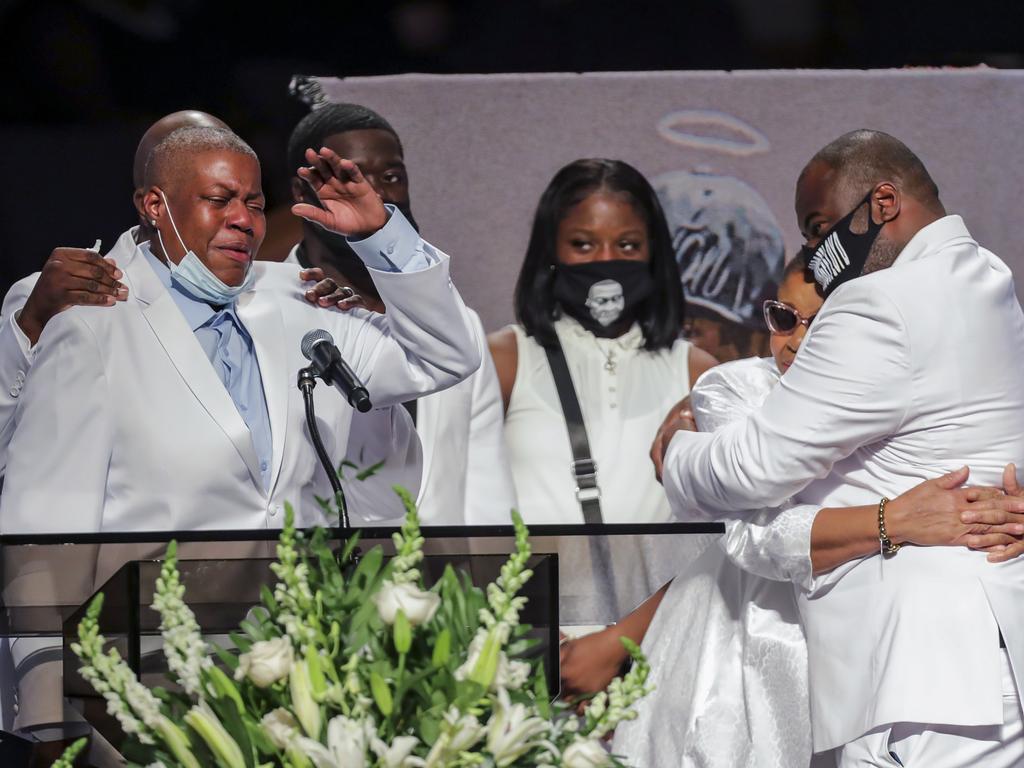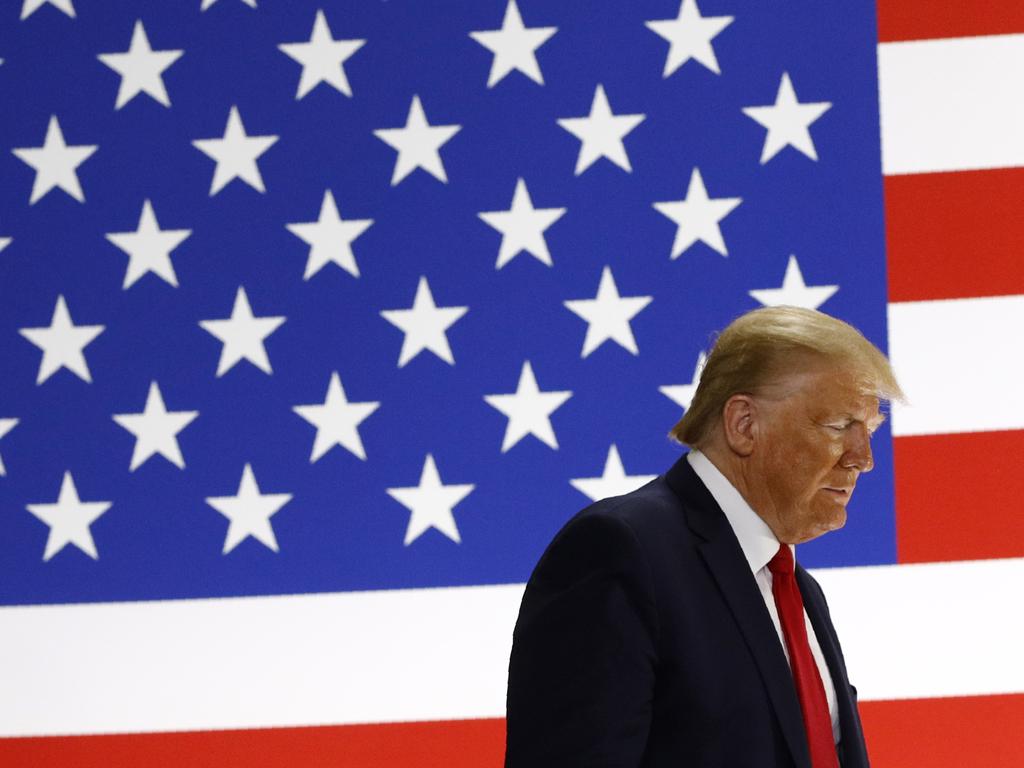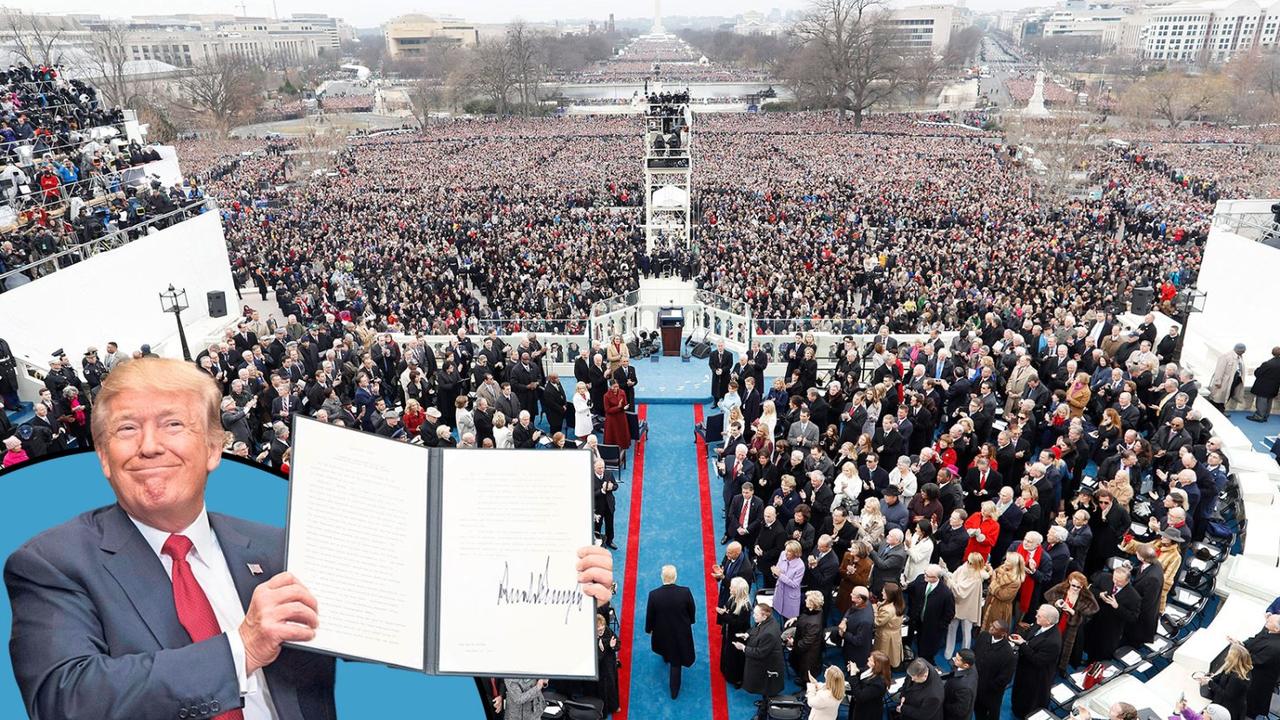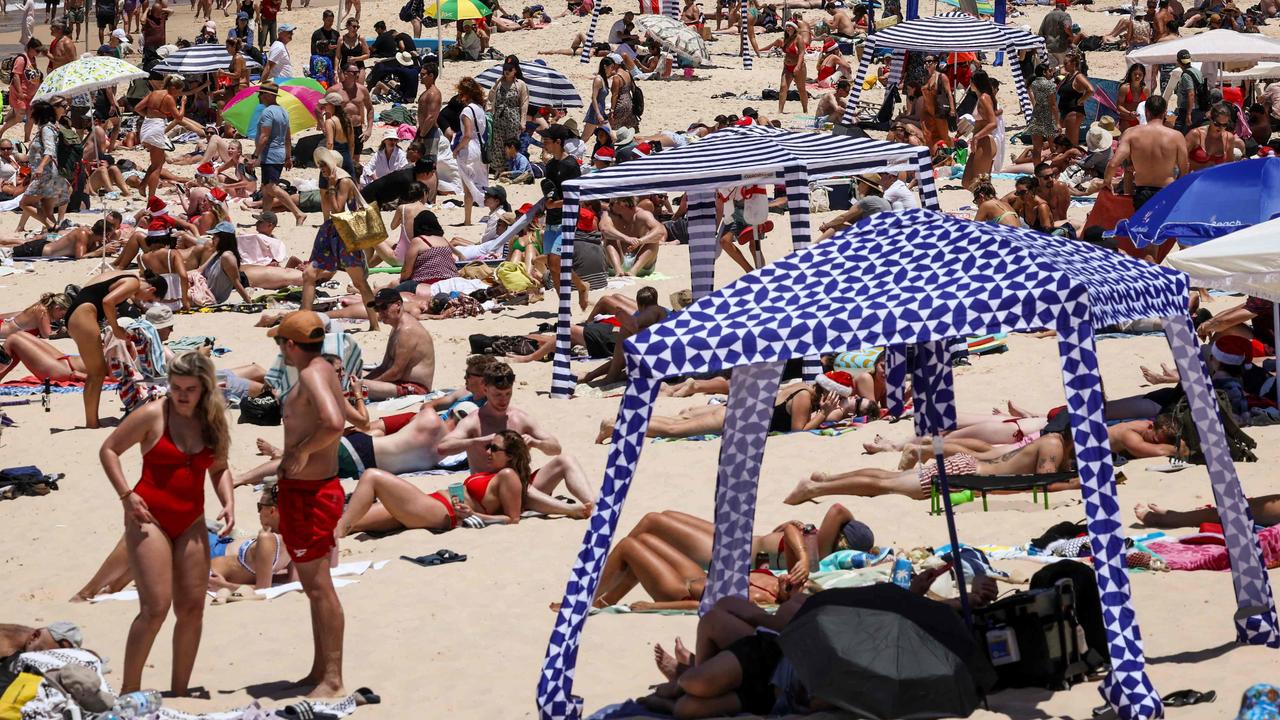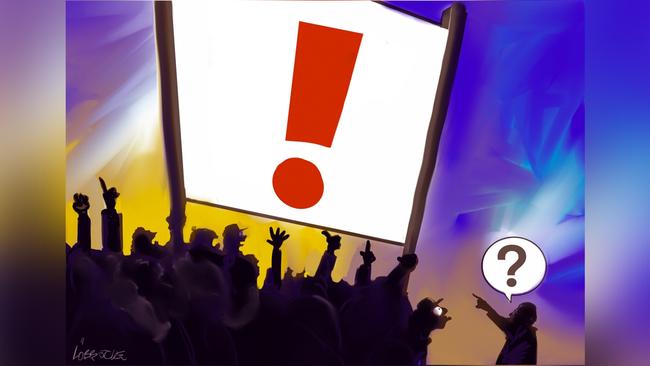
Politics, not principles, have drowned out the tragic death of a black man.
Is the despicable killing of George Floyd a new start for race relations around the world? Sadly, no. The past fortnight of protests and riots in the US, and many other countries since, has become a showcase of politics as usual.
There is nothing remotely new or refreshing about people siding with their tribe, rather than thinking for themselves and then calling out what’s wrong.
But, then, political movements that become blunt instruments don’t allow for free thinkers.
The modus operandi of the Black Lives Matter movement is simple: come up with a phrase that is self-evidently true. Black Lives Matter. Yes, they do. The death of Floyd at the hands of Minneapolis police was an abomination. Then attach a political movement to that self-evident truth. If you question any part of the political movement, you risk being denounced as someone who thinks that black lives don’t matter.
In this case, if you condemn the venomous anti-Trump part of the protests, you are cast adrift. But facts matter too. The US President is not responsible for three centuries of racism in America. This scourge predates and will outlast his presidency.
As the former opinion editor of The New York Times, James Bennet, discovered last weekend, if you run a piece by an elected representative that notes on dozens of occasions other presidents have ordered regular military units to quell violence — Franklin Roosevelt in 1943, Dwight Eisenhower in 1957, John Kennedy in the early 1960s and Lyndon Johnson later that decade, and more recently George HW Bush during the 1992 Los Angeles race riots — a baying mob will demand your resignation. If you condemn the violence, the looting and wanton destruction of businesses run by people who can ill afford more devastation, you will be accused of being a moral relativist because there is less room to add shades of grey with facts to the black-versus-white canvas of modern politics.
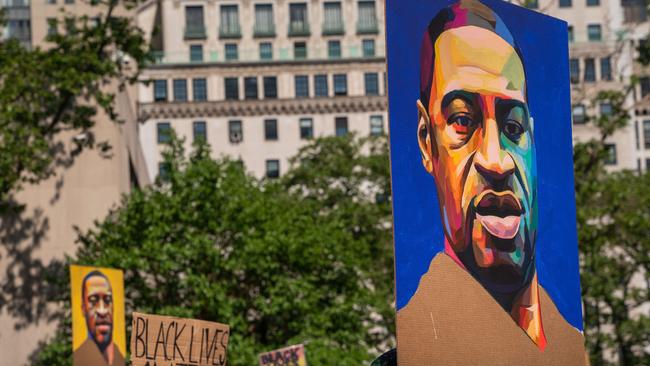
The culture wars are more highly charged today. An increasingly secular age has turned politics into the new religion, with its own version of moral commandments. The rise of identity politics has narrowed and deepened tribal allegiances even more. Dissent certainly, but also mere curiosity is apostasy.
Pick a side holus-bolus or end up as a political orphan, marked down as suspicious and a moral equivocator. It’s not surprising that many people choose sides because the path of least resistance is much easier than confronting the nuance of complex problems. But beware where it leads.
As Russian scholar Gary Saul Morson told The Wall Street Journal last weekend: “When you’re dragged along into something you don’t really believe yourself — because otherwise you are identified with those evil people, and your primary identity is being a ‘good guy’, not like those people — you will wind up supporting things you know to be wrong. And unless there is some moral force that will stop it, the slide will accelerate.”
One of the many chilling scenes from the protests in the US has been the sight of white people kneeling in front of black people, seeking forgiveness and redemption for things they have not done and trying to renounce their white privilege. How will that help eradicate racism? This cult-like phenomenon points to a political movement that risks losing sight of principles; one that seeks submission from white people rather than equality for all.
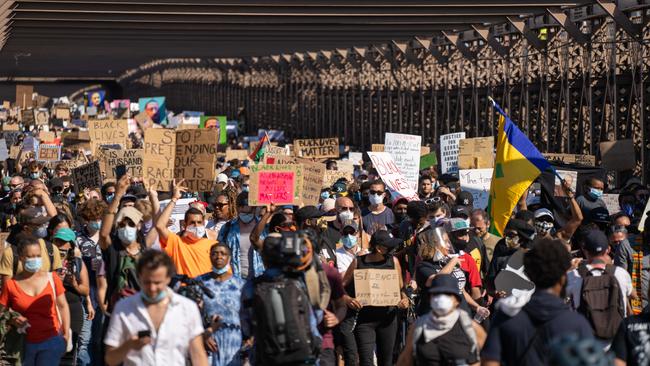
Those who are kneeling in front of black people or posting black squares on social media or tearing down statues or flying Black Lives Matters banners may genuinely feel helpless in the face of monumentally difficult issues. But they should not mistake an exercise in gesture politics with renouncing their privilege.
Privilege is innate. It comes from being born into a loving family, from getting a good education, from the economic upsides that flow from one or both, and from never having to consider the colour of your skin. Privilege can be harnessed. But feeling good by kneeling in front of a camera, or posting on social media, is not the same as doing good far away from the crowds.
The other chilling scene was US President Donald Trump holding up a Bible in front of the boarded-up St John’s Episcopal Church across the street from the White House last week. Trump did not open the Bible, or explain his own faith, or offer words of prayer for the cameras gathered around him after protesters were pushed back by police officers using tear gas, flash grenades and rubber bullets. Trump’s gesture politics, and his abuse of religion at a time of national crisis, ought to be called out, especially by Christians, on whose support the President depends.
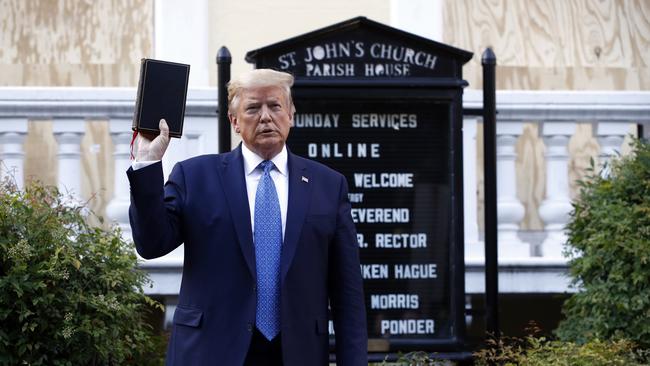
But once again tribal politics explains much of the silence. It is not very different to the failure of many progressives to denounce the gesture politics among Black Lives Matter protesters.
Morson, a professor of Russian literature, points to the perils of the ideological segregation in the culture wars of today. “You get into a revolutionary situation because people can’t hear,” he told The Wall Street Journal.
“Can there be a dialogue on important questions, or is there only one thing to say about every question? Are people afraid to say, ‘Well, yes, but it’s not quite as simple as that’? … When you can’t do that, you’re heading to a one-party state or a dictatorship of some sort. If one party is always wrong and another always right, why not just have the right one?”
One can support the protests in the US, Australia and elsewhere and also question the misguided politics of the Black Lives Matter movement. One can support the protesters’ right to speak out and also ask how many of them gave a toss about the clampdown on civil liberties over the past few months. And how many of them have defended the right of others to speak out when they disagreed with what was being said?
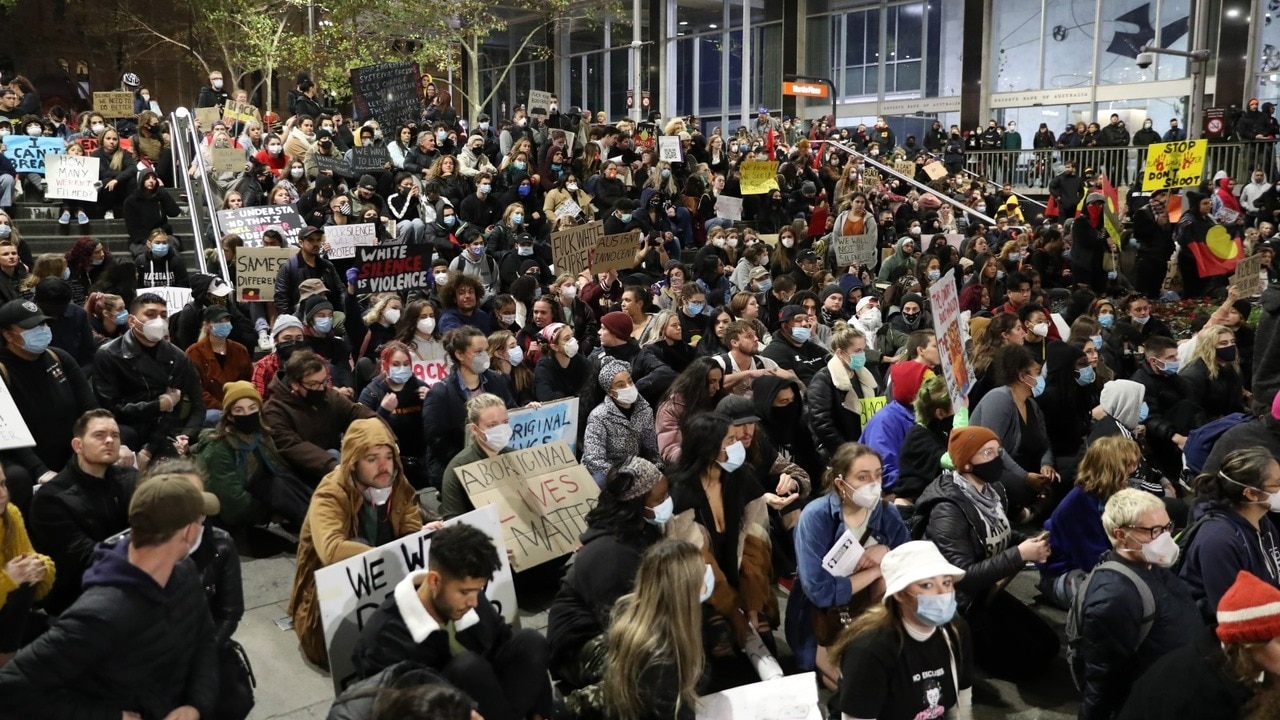
Writing in The Australian Financial Review last week, Aaron Patrick said it was “ironic” that many conservatives supported Drew Pavlou, a left-wing University of Queensland student who, if his claims are true, has been suspended for his anti-China protests.
It is not ironic at all. The deal with free speech is you defend those with whom you disagree, and they defend your right to speak freely too.
On that front, it’s worth noting Pavlou hasn’t been a consistent supporter of free speech. In social media posts, he has called for the crushing of dissent and the bullying into submission of people with whom he disagrees. In those circumstances, moralising about your own right to protest may be marked down as a political stunt, not praised as a principled stand.
Then again hypocrisy abounds. The NSW Court of Appeal gave the green light on Saturday for tens of thousands of people to gather on the streets when 50 people is the limit in a pub because, the court said in reasons delivered yesterday, police signalled to organisers it could go ahead. What a farce. It cannot be the case that civil liberties attach to only some people, to certain protests, to specific causes. That’s the road to authoritarianism.




